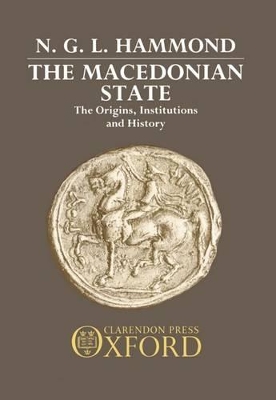Clarendon Paperbacks
1 total work
In 338 BC Philip II of Macedon established Macedonian rule over Greece; he was succeeded in 336 by his son Alexander the Great, whose conquests in the twelve years that followed reached as far as the Russian steppes, Afghanistan, and the Punjab, and created the Hellenistic world. The study of Macedonia has just been completed in three volumes by N. G. L. Hammond, helped by G. T. Griffith and F. W. Walbank. On the basis of that work, (Volume III of which won the
Runicman Award, 1989), Professor Hammond now provides in one volume a history of the Macedonian State in action from early times to 167 BC. The most important concern is the nature of the Macedonian State and its institutions both in Europe and in the Hellenistic kingdoms in Asia and Egypt, on which much
new light has been shed by epigraphic and archaeological discoveries. Those institutions have had a profound influence upon subsequent history. Full references are given to the ancient sources of information and to archaeological, numismatic, and epigraphic articles.
Runicman Award, 1989), Professor Hammond now provides in one volume a history of the Macedonian State in action from early times to 167 BC. The most important concern is the nature of the Macedonian State and its institutions both in Europe and in the Hellenistic kingdoms in Asia and Egypt, on which much
new light has been shed by epigraphic and archaeological discoveries. Those institutions have had a profound influence upon subsequent history. Full references are given to the ancient sources of information and to archaeological, numismatic, and epigraphic articles.
